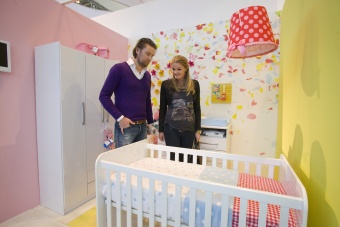Poor kids face disadvantages from birth, new research finds


Children who grow up poor fall behind their richer peers early in life, according to new research from the Erasmus School of Economics, reported in the Volkskrant.
A study of 153,000 children from ages zero to 14 years found that the children of richer parents do better across the board, in terms of health, behavioural issues and education.
Researchers Coen van de Kraats and Bastian Ravesteijn studied anonymised data from the Dutch national statistics office CBS, child health centres and school doctors in four different parts of the country. They looked at the relationship between childhood poverty and weight, language development and psychological problems, among others.
Early Indications
Differences in children can be seen from an early age. By the age of two, children should be able to say two-word sentences, like ‘Grandma nice.’ From high-income households, 95% of children meet this threshold. But only 80% of children from poor households do.
‘If you start at school with a language or speech delay, it will be more difficult to keep up and the delay will continue, Ravesteijn told NOS in an interview.
And it isn’t simply about command of the Dutch language. Children can be tested at the Consultatiebureau, the council run baby and toddler clinics, in other languages.
Causes
The stress of poverty also plays a big role. Cheap food is often less nutritionally dense, which can lead to health problems. And parents who are working long hours may have less time and energy to take their children to the park to play or to talk to them, the researchers say.
Poverty itself can lead to people having lower IQs. Other research has shown that when people are no longer poor, they score better on cognitive intelligence tests.
Interventions
The researchers see some methods of assistance that do make a difference. But, they say, they aren’t always implemented.
‘Every municipality wants to reinvent the wheel and can ignore programmes that work,’ says Ravesteijn.
He lists good quality early childhood education as one way of helping children. Paying the fees for poor children so they can join sports teams and better education programmes for parents, so they can understand how to make better choices for their kids also have a positive effect.
Inequality is an issue as old as time, but the researchers say, what to do about it isn’t very well understood. ‘We can’t solve it yet, but we can understand it better. If you catch it early, it is possible to turn the situation around and ensure that these children also end up well,’ says Ravesteijn.
Thank you for donating to DutchNews.nl.
We could not provide the Dutch News service, and keep it free of charge, without the generous support of our readers. Your donations allow us to report on issues you tell us matter, and provide you with a summary of the most important Dutch news each day.
Make a donation